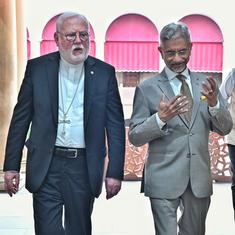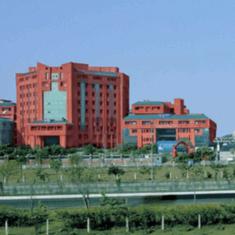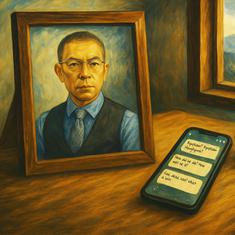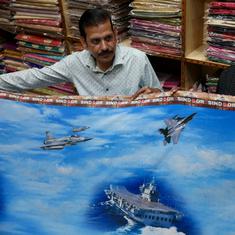There will be protests if Jammu and Kashmir’s special status is taken away, warns Farooq Abdullah
The former chief minister accused the BJP and RSS of conspiring to ensure that the Constitution’s Article 35A is repealed.

Former Jammu and Kashmir Chief Minister Farooq Abdullah on Monday said the Opposition and the public will challenge any move to repeal Article 35A of the Constitution, which grants special privileges to the state’s permanent residents, PTI reported.
Leaders of a number of parties, including the Congress and the Communist Party of India (Marxist), as well as independent ones attended a meeting on Monday to discuss the controversy. Abdullah, the president of the National Conference had called for the meeting.
“When it will come to that decision [the repeal of Article 35A], you will see this mass rising of people,” he told reporters after chairing the meeting. “Do not forget that when the Amarnath Yatra land transfer controversy had happened in 2014, people rose overnight. So [repealing] Article 35A will be far greater revolt, and I wonder whether the government will be able to control that.”
Abdullah further alleged that the Bharatiya Janata Party and the Rashtriya Swayamsevak Sangh had conspired to erode the special status of Jammu and Kashmir.
Plea against Article 35A
In 2014, a Delhi-based NGO, We The Citizens, had filed a petition in the Supreme Court demanding that Article 35A be repealed because of its “unconstitutional character”. During a hearing on July 17, the Centre had sought a larger debate on the matter. The bench is slated to hear the case again in August.
Abdullah said the state government had not put up a “high class representation” before the Supreme Court to fight the case.
What is Article 35A?
Article 35(A) of the Indian Constitution gives the Jammu and Kashmir legislature the power to define the “permanent residents” of the state and provide them with special rights and privileges. The provision bars citizens from other parts of the country from acquiring immovable property in the state, taking up jobs with the state government, availing of state-sponsored scholarships, or settling permanently anywhere in the Valley.
The article was implement by former President Rajendra Prasad in 1954. Under the Constitution (Application to Jammu and Kashmir) Order 1954, the provision appears as an “appendix” in the Constitution and not an amendment.









